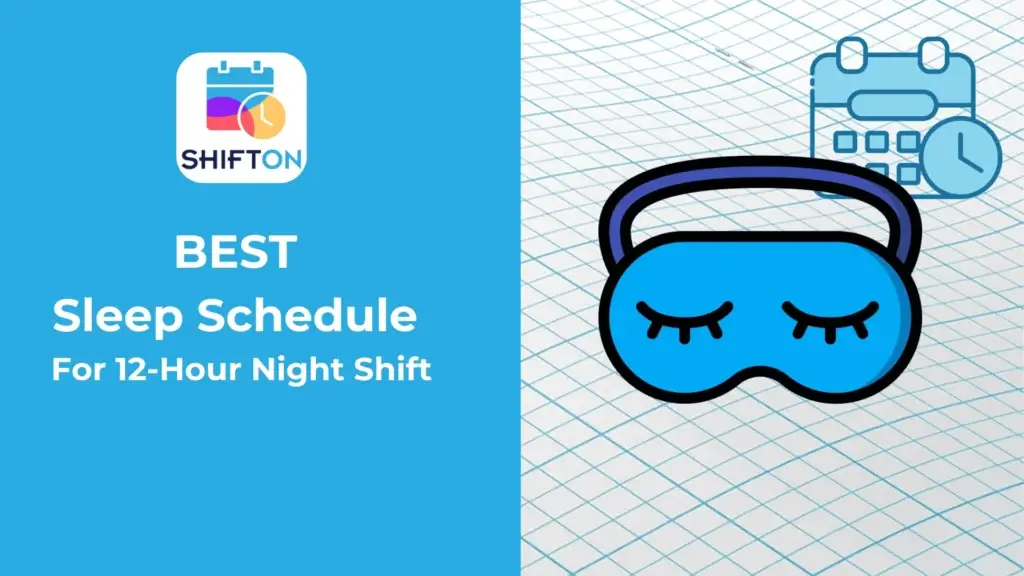Most workers have a standard Monday to Friday work week with typical hours from 9-10 AM to 6-7 PM. However, this scheduling doesn’t suit organisations and companies that need to operate 24/7, such as hospitals, call centres, and fire departments, to name a few.
For example, many fire departments use a 48/96 hour work schedule. This means that firefighters typically work two days straight and then get four days off. Although they need to stay alert for two days with limited sleep or rest, recent studies show this type of shift work gives them enough time for leisure, sleep, and preparing for the next rotation.
Hospitals must always have nurses available to provide 24/7 patient care. They may work 8/12-hour shifts on schedules like 3 workdays/3 days off or 2 workdays/2 days off. Generally, nurses work fixed shifts (day or night). For example, day-time nurses start at 7 AM and finish at 7 PM, while night-time caregivers start at 7 PM, work late-night hours, and finish at 7 AM.
Call centres may have their own shift work rules, but there are several common methods for maintaining a steady 24/7 work cycle. Managers typically divide a day into 2 or 3 shifts. In one scenario, a day is divided into two 12-hour shifts for morning and evening workers. Another option includes three 8-hour shifts, such as: 6 AM - 2 PM (1st), 2 PM - 10 PM (2nd), and 10 PM — 6 AM (3rd).
In some cases, employees must alternate between shifts: working morning shifts for a few days and then switching to night shifts for the same duration. According to recent research, changing work hours negatively affects sleep and eating patterns. Working night shifts can lead to insomnia, high blood pressure, and appetite disorders. This article will outline ways to better adapt to a night-time schedule.
12-hour night shift sleep schedule example
The human body’s circadian rhythm dictates waking and resting schedules. People working in 24/7 cycle organisations, such as police officers, firefighters, nurses, call centre operators, and petrol station workers, experience disruptions to their circadian clocks. Typically, managers have to plan shift work so workers receive adequate time for both work and rest.
Compared to an 8-hour day shift, night shift (11 PM to 6 AM) work time is decreased from 8 to 7 hours. A worker may also agree to a 12 AM — 5 AM schedule if required. Despite losing five work hours a week compared to day-time colleagues, night-shift workers receive the same 40-hour-week salary. Night shift staff may be called in for extra hours, but do no more than 8 hours in 24 hours.
16-17-year-old staff are prohibited from working between 12 and 4 AM. However, they are allowed to work from 10 PM to 6 AM if employed by hotels, retail shops, or hospitals. No restrictions apply to night shift hours for hospitals, emergency services, TV, and radio stations.
Many workers transitioning from a morning to an evening shift experience exhaustion, insomnia, and changes in weight and appetite. It takes time to adjust to new waking and sleeping hours, but there are tricks to make the process less challenging for newcomers.
How to get a good night's sleep when working late evening shift hours
For a smooth transition between shifts, the body must be prepared for upcoming changes. If an employee rotates between morning and evening shifts, the wake-up and bedtime should be adjusted accordingly. Switching from morning to night shifts requires waking up and going to bed an hour later for a few days. To transition from night to morning working hours, employees should wake up and go to bed an hour earlier for a few days.
Regardless of when work begins, a good night's sleep is essential for a productive day on the job. In general, workers should sleep at least 6 hours a day to feel rested. However, those working night shifts struggle with this due to our bodies being naturally active in the daytime. The solution is to adapt the environment to mimic nighttime conditions.
First and foremost, all noise should be blocked out. Turning off your smartphone, doorbell, and TV is a must. If you’re used to sleeping with white noise, investing in good noise-cancelling headphones under 200 dollars can eliminate sounds that disturb your sleep. It also helps if the bedroom is the quietest part of your home. Soundproof windows with good insulation can further reduce outdoor noise. Informing friends and neighbours about your sleep schedule helps avoid untimely calls.
It's also important to darken the room as much as possible, even when the sun is bright outside. Blackout curtains are an effective solution. Avoid eating or drinking right before bedtime. Don't consume alcohol or caffeine hours before sleep. A good book or a hot shower/bath can help your body relax and fall asleep easier.
How shift work changes appetite
Changes in circadian rhythm affect both sleep and eating patterns. Irregular or excessive eating, especially at night, leaves workers feeling tired and restless, impacting their productivity and health.
Here are several tips for surviving the night shift while minimising the risk of gastrointestinal diseases or weight gain. Before work, it’s important to have the biggest meal of the day to be energised and ready for work. 6 PM is the optimal time for this meal if working late into the night.
What to eat during night shift work
Drowsiness and fatigue are common side effects of working night shifts. These can be alleviated by maintaining a healthy diet. During night shifts, workers should focus on high-protein foods like tuna, chicken, tofu, eggs, and low-fat cheese. These will help maintain alertness and focus.
These can be made into nutritious snacks employees can take to work. For example, pack a brown rice salad with chicken breast and tofu or a vegetable and bean soup. Keep hunger at bay with hazelnuts, apples, Greek yoghurt, almonds, carrots, and hummus – all good and healthy choices.
It’s also important to drink enough water during night shifts. Staying hydrated reduces reliance on coffee or sweets for alertness and energy. Sugar-free black and herbal tea, fresh vegetable juices, and cold water are great hydration choices.
What to avoid during night shift work
Consuming high-carbohydrate foods shortly before or during a night shift leads to drowsiness and low productivity. Foods like potatoes, bread, or cereals cause sedation and relaxation, making it difficult for workers to power through a night shift.
Sugary beverages and foods can be equally harmful. While soda or a candy bar may initially seem like good energy sources, they cause drowsiness a few hours later. Additionally, the human body struggles to process sugar effectively during nighttime.
Excess caffeine is another risk for night shift workers. A few cups at the start of a night shift are fine, but consuming it throughout can cause insomnia and other sleep disorders. The daily intake shouldn’t exceed 400 mg of caffeine (about four small cups).
We hope the advice provided is helpful for night shift workers.

 English (US)
English (US)  English (GB)
English (GB)  English (CA)
English (CA)  English (AU)
English (AU)  English (NZ)
English (NZ)  English (ZA)
English (ZA)  Español (ES)
Español (ES)  Español (MX)
Español (MX)  Español (AR)
Español (AR)  Português (BR)
Português (BR)  Português (PT)
Português (PT)  Deutsch (DE)
Deutsch (DE)  Deutsch (AT)
Deutsch (AT)  Français (FR)
Français (FR)  Français (BE)
Français (BE)  Français (CA)
Français (CA)  Italiano
Italiano  日本語
日本語  中文
中文  हिन्दी
हिन्दी  עברית
עברית  العربية
العربية  한국어
한국어  Nederlands
Nederlands  Polski
Polski  Türkçe
Türkçe  Українська
Українська  Русский
Русский  Magyar
Magyar  Română
Română  Čeština
Čeština  Български
Български  Ελληνικά
Ελληνικά  Svenska
Svenska  Dansk
Dansk  Norsk
Norsk  Suomi
Suomi  Bahasa
Bahasa  Tiếng Việt
Tiếng Việt  Tagalog
Tagalog  ไทย
ไทย  Latviešu
Latviešu  Lietuvių
Lietuvių  Eesti
Eesti  Slovenčina
Slovenčina  Slovenščina
Slovenščina  Hrvatski
Hrvatski  Македонски
Македонски  Қазақ
Қазақ  Azərbaycan
Azərbaycan  বাংলা
বাংলা 

